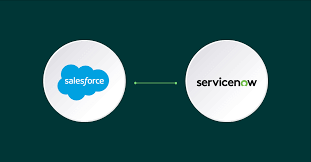It is undeniable that cloud computing solutions are in more demand than ever before. This is as they offer numerous advantages to businesses. Traditionally companies spend most of their time maintaining and upgrading their on-premise infrastructure. Today, IT entities and companies worldwide are adopting cloud services or solutions as it helps them save money and effort.
According to Statista, the worldwide public cloud computing market will reach an estimated 482 billion USD in 2022.
Defining Cloud Testing
Cloud testing, also termed cloud-based testing, implies testing an application in the cloud to validate its performance, security, scalability, interoperability, multitenancy, etc. Also, not to overlook that leveraging cloud computing infrastructure reduces the unit cost of computing.
It even explicitly increases testing efficiency while having several compelling benefits such as flexibility, high scalability, testing difficult test environments involving multiple mobile OS, browsers, various platforms, and more.
Nevertheless, it often turns out to be a complicated task finding the perfect cloud engineers, and therefore it becomes necessary that you must find a reliable platform to hire cloud engineers in order to ensure they perform the tasks with desired proficiency.
How Cloud Testing Services Can Help In Overcoming Quality Challenges?
- Help in Improving Security:
Cloud-based security testing is crucial to improving the application’s security in the cloud. Enhanced security will ultimately improve the quality. It ensures the identification of security bottlenecks and helps remove security vulnerabilities that cyber-attackers/hackers could otherwise exploit. This way, there are lesser chances of loss in businesses.
- Enhances Overall Quality-related Performance:
Performance testing in cloud computing ensures no performance-related loopholes in the software, and several features like the auto-scaling feature work appropriately so that servers or virtual machines can automatically manage the load handling capacity when traffic utilization levels fluctuate or increase/decreased accordingly.
- Cloud Testing Improves Quality By Checking Compliance:
By leveraging cloud testing services, testers also ensure that the application under test meets all the laws and regulatory compliance, like data protection laws, data sovereignty laws, data localization laws, and access to information laws, to name a few. These are all necessary for an app to operate in the cloud.
- Enables Seamless App Migration:
Cloud testing helps ensure the companies ensure effective migration of applications stored on the cloud. This is done by removing data migration issues related to the incompleteness of migrated data, database errors, and other technical-related glitches.
- Proper Integration With Cloud Testing:
Cloud testing helps remove all sorts of integration issues and ensure that the application is compatible with various platforms. It also validates that the app or service properly integrates with servers and works well in the cloud.
- Allows Testing Across Various Types Of Clouds:
Cloud testing allows the testing across various types of clouds, such as public, private, hybrid, community, or combinations.
Various Types Of Cloud Testing:
-
Functional Testing:
The main area of focus of this testing type is to ensure the application on the cloud functions
- Seamlessly
- To ensure it is robust
- Meets all business needs and customer expectations.
The various types of functional tests are:
End-to-end Business Flow Testing: This type of testing method tests the application’s workflow from the start to the end. It involves real-time user scenarios to ensure the application works well and delivers a great customer experience.
Exploratory Testing: In this type of software testing, the application on the cloud is made to be tested on the fly. Again, the focus of this testing type is to find bugs in the software quickly.
Data Migration Testing: It is pretty self-explanatory. This type of testing is performed to ensure proper data migration on the cloud. It also provides that no data loss happens while the data is migrated from various sources to the cloud.
Automation Testing: This type of testing involves automating end-to-end software testing. The main arena of focus of this test is to accelerate the software testing procedure, reduce regression testing time, and also find bugs more effectively. Automation testing holds many benefits.
Compatibility Testing: This cloud testing type ensures that the application is compatible with different platforms and works aptly when moved from one cloud infrastructure.
-
Non-functional Testing:
This cloud testing type works to validate the software’s non-functional features. The main aim of such tests is to maintain and ensure high performance, enhance security, and maintain the reliability of the application on the cloud. Following are the Major non-functional testing types:
Performance Testing: This test is performed to validate whether the application effectively handles the high-user load and can perform well under all conditions when moved to the cloud. It also involves
- Load testing,
- Scalability testing,
- Availability testing
- Volume testing.
Security Testing: This type of cloud testing ensures end-to-end security of applications stored on the cloud. Applications, networks, and compliances are tested thoroughly in this testing type to avoid them from any cyberthreat.
-
Cloud-specific Testing:
This type of testing is performed explicitly on the application in the cloud. It further includes various testing methods:
Disaster Recovery Testing: This type of testing checks the disaster recovery time taken by the application or service. It further ensures that the users can access the application in the minimum time possible.
Compatibility Testing: as the name suggests, this testing type is done to guarantee that the application in the cloud is compatible with the end number of platforms and network servers.
Multi-tenancy Testing: this type of testing includes an architecture where multiple users can share the physical resources of a single platform. This type of testing is performed to ensure the software can handle the high user load due to the possibility of multiple users using it.
Wrapping Up
Cloud-based solutions and services have gained significant momentum. Their importance has increased more than ever before; they have undoubtedly become the need of the hour for all enterprises. Businesses must ensure end-to-end testing of their apps in the cloud to gain the maximum benefits of cloud computing services.
However, in case of some testing challenges in the cloud environment, companies should carefully handle and address the issues. Undoubtedly, cloud testing is the best way of overcoming quality-related challenges. Businesses should leverage cloud testing from next-gen Quality assurance and independent software testing service providers. This will let them have fully functional, high-performing, secure, and scalable cloud apps.





